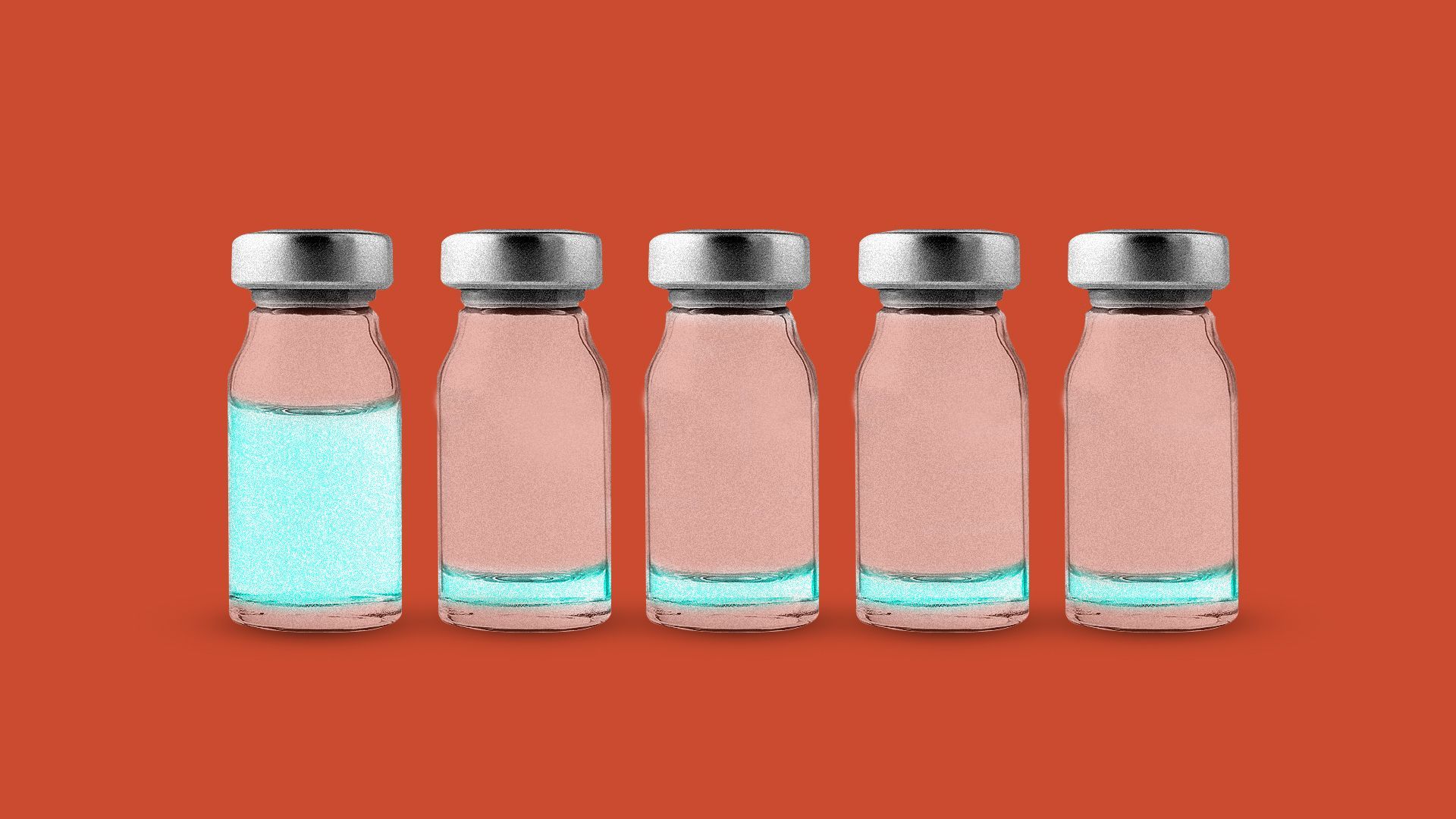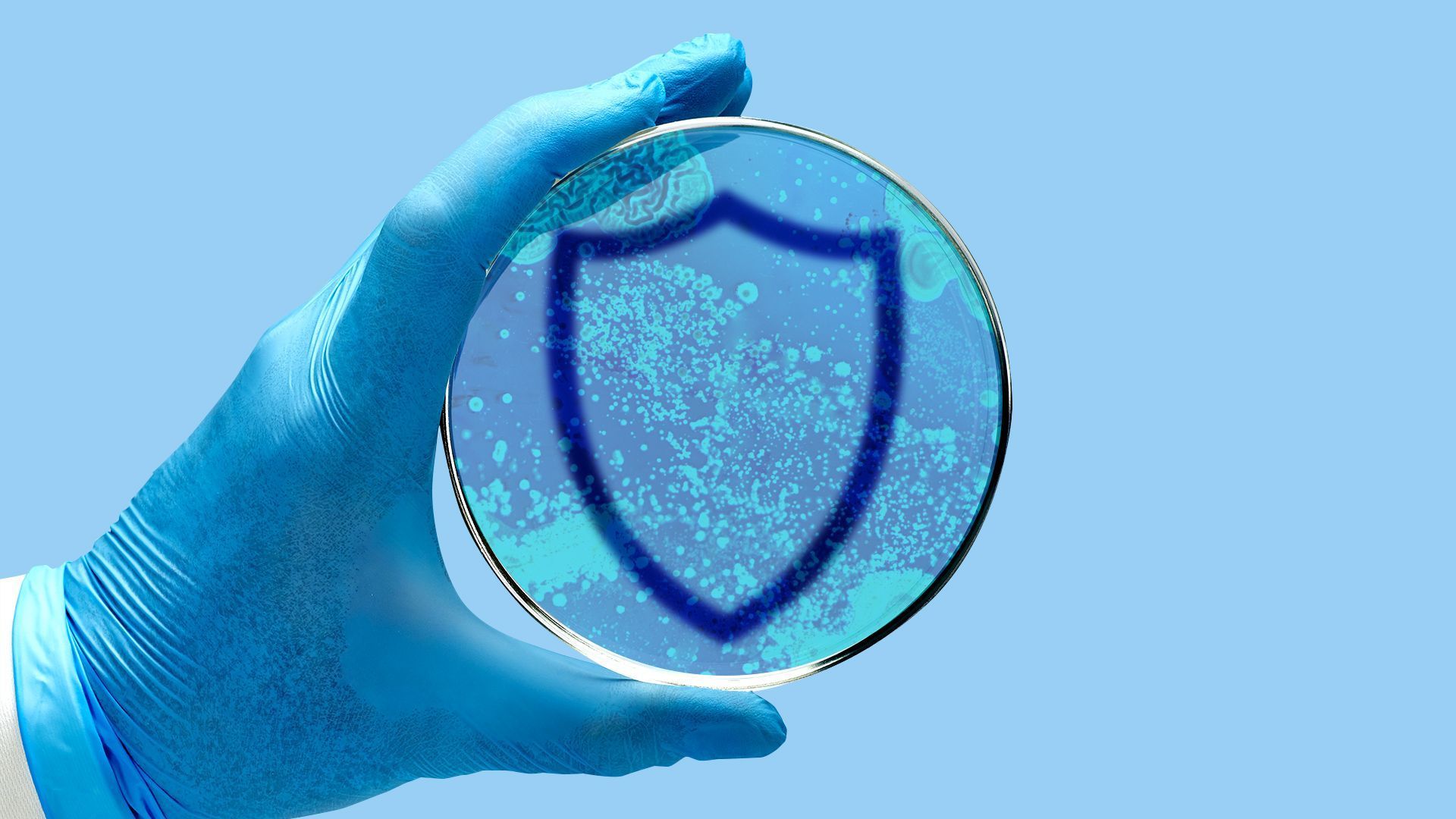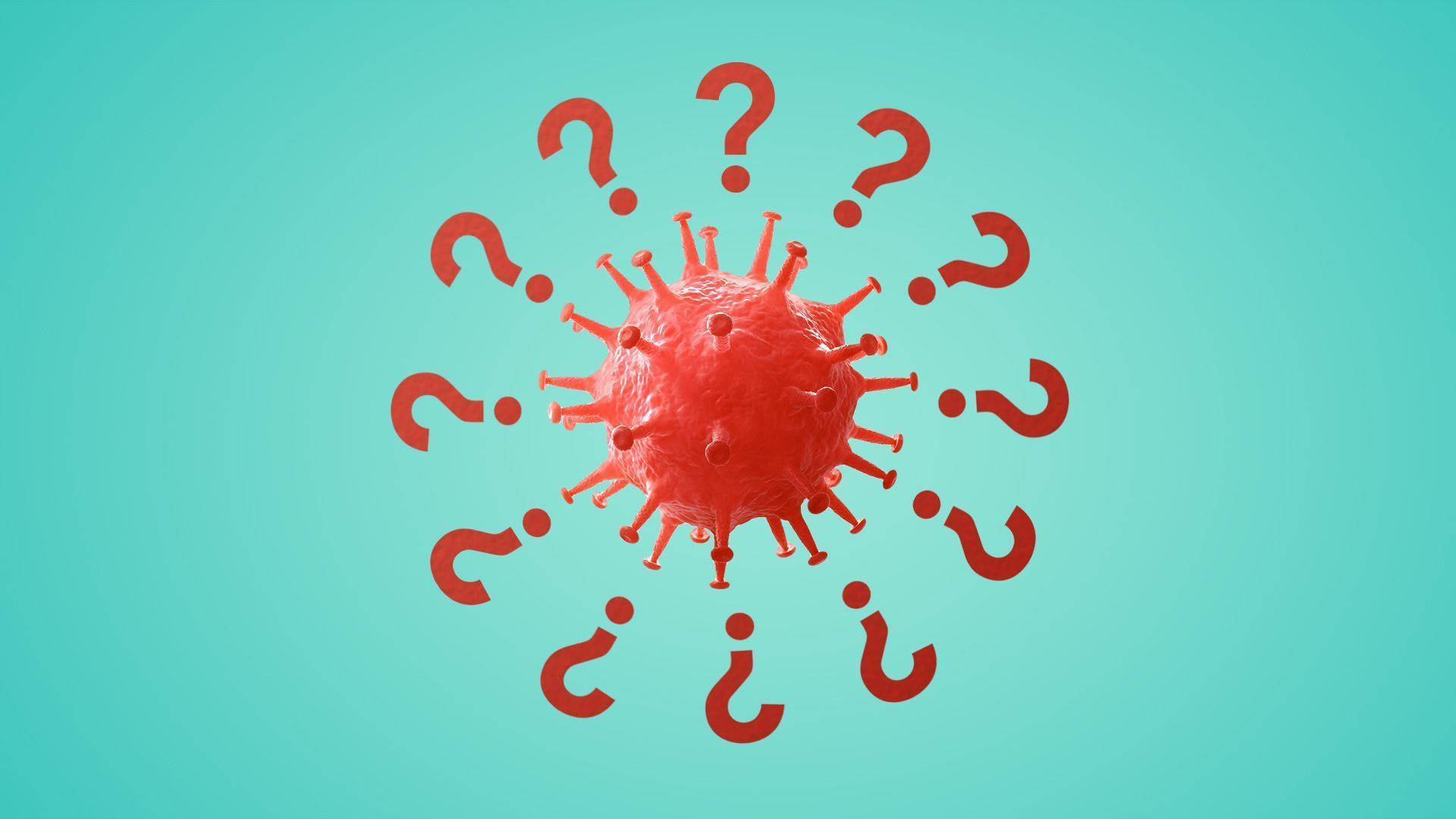| | | | | | | Presented By Emergent | | | | Axios Vitals | | By Tina Reed · Mar 21, 2023 | | Good morning, Vitals readers. Today's newsletter is 900 words or a 3½-minute read. Join us in Washington: Axios' Adriel Bettelheim and I will explore how the U.S. can improve its public health preparedness at an event on Thursday, March 23, at 8am ET in Washington, D.C. - Guests include HHS Assistant Secretary Dawn O'Connell, the Bipartisan Commission on Biodefense's Asha M. George, and Johns Hopkins Center for Health Security director Tom Inglesby. Register here to attend in person.
| | | | | | 1 big thing: Drug shortages upend hospitals care, cancer treatments |  | | | Illustration: Aïda Amer/Axios | | | | Supplies of some essential drugs used in hospitals are hitting 10-year lows, forcing rationing and pharmacy workarounds. Driving the news: Drug shortages are the worst they've been in a decade, according to the American Society of Health-System Pharmacists — a sign of how much we rely on low-margin manufacturers with limited capacity for basics like the inhalation drug albuterol and some common cancer treatments. What they're saying: Quality control issues, some plant closures and other manufacturing woes have added up, Michael Ganio, senior director of pharmacy, practice and quality at ASHP, told Axios. Between the lines: Oncology drugs have been hit particularly hard in recent months, putting hospitals and clinics in a bind. - Medicines in short supply include methotrexate, an injectable chemotherapy drug, and one of several generics produced by Illinois Akorn Pharmaceuticals, which filed for bankruptcy and shuttered operations last month.
- Manufacturing delays and increased demand have also led to shortages of the cancer treatments cisplatin, and fluorouracil, per ASHP.
- Pluvicto — used to extend survival among patients with metastatic prostate cancer — will take months to be made available to patients again, the Wall Street Journal reports.
- "People will die from this shortage, for sure," Jonathan McConathy, director of the division of molecular imaging and therapeutics at the University of Alabama, told WSJ.
- A survey of health systems conducted by the group End Drug Shortages Alliance found the injectable Bacillus Calmette-Guerin (BCG), used for treating bladder cancer, was being rationed or was not available for use at all.
- "This is a terrible crisis. We should be doing everything we can to give every single one of these patients the best chance of survival," Laura Bray, a board member of the alliance, told CNN.
Between the lines: Manufacturing delays and quality problems are blamed for the shortages. But that's often because there aren't many alternative sites to pick up the slack due to the economics of the market, experts say. "These are really low-margin businesses. These companies, particularly the ones that are making some of these sterile products relied upon so heavily by hospitals, really have little play in the supply they are able to offer," Hilary Marston, the FDA's chief medical officer, told Axios. - The agency works with manufacturers as much as it can, quickly approving acceptable workarounds, she said. "But the underlying reality of this market remains what it is," Marston said.
Go deeper. |     | | | | | | 2. Drug-resistant fungus worsened during pandemic |  | | | Illustration: Aïda Amer/Axios | | | | An emerging fungal infection that can prove fatal in communal health settings spread further and became more drug-resistant during the pandemic, a Centers for Disease Control review of surveillance data found, Axios' Arielle Dreher writes. Why it matters: The timing suggests the spread of Candida auris could have been exacerbated by COVID-related stresses like staff and equipment shortages, increased antimicrobial use and changes in patient movement. - The increase in cases underscores the importance of infection control in hospitals and long-term care facilities, researchers said.
What they found: The number of C. auris clinical cases tripled from 2019 to 2021, to 1,471 in 2021. - Most U.S. cases are found in post–acute settings, especially long-term acute care hospitals.
- While many early cases were contracted abroad, C. auris has been detected in more than half of the states and is endemic in some areas.
- There were 3,270 clinical cases in the U.S. through 2021, along with 7,413 detected through screening.
Between the lines: The CDC is still studying how the fungus spreads, but it's been primarily detected in sick patients, particularly those with weaker immune systems or in need of catheters or feeding tubes. |     | | | | | | 3. Biden to declassify COVID origins info |  | | | Illustration: Aïda Amer/Axios | | | | President Biden on Monday signed a bill requiring his administration to declassify information about COVID-19 origins, Axios' Peter Sullivan writes. Why it matters: The bill, which passed both houses of Congress unanimously, shows the increasing momentum around investigating circumstances around the emergence of the virus. What's next: The bill requires the director of national intelligence to declassify the information within 90 days. Yes, but: The administration can redact information on sources and methods, which Biden alluded to in his signing statement. - "In implementing this legislation, my Administration will declassify and share as much of that information as possible, consistent with my constitutional authority to protect against the disclosure of information that would harm national security," Biden said Monday.
Between the lines: The White House had previously declined to say if Biden would sign the bill, but his options were also limited by the overwhelming support in Congress. - "My Administration will continue to review all classified information relating to COVID–19's origins, including potential links to the Wuhan Institute of Virology," Biden said.
A version of this story was published first on Axios Pro. Get news like this by subscribing. Use code POLICY100 which gives you $100 off. |     | | | | | | A message from Emergent | | Safeguarding millions against public health threats | | |  | | | | Accidental opioid overdoses can happen to anyone, anywhere, at any time. In the fight to help combat the opioid epidemic, Emergent has been committed to expanding access — and awareness — to naloxone including for the most vulnerable patient populations at risk. Learn more. | | | | | | 4. Quote du jour: Let's talk food | | "Diabetics get admitted with hypoglycemia at the end of the month because they're taking the same dose of insulin, but their food stamps ran out ... It's an obvious yes, that food is medicine." — Rajaie Batniji, CEO of public benefit company Waymark, tells Axios' Claire Rychlewski and Erin Brodwin about why businesses, investors are increasingly seeing the health ROI in food. |     | | | | | | 5. Catch up quick |  | | | Actor Jason Sudeikis, of "Ted Lasso," points to fellow cast member Jason Lance while speaking about mental health during the press briefing at the White House on Monday. Photo: Kent Nishimura/Los Angeles Times via Getty Images | | | | 👉 FDA staff says Biogen's ALS drug may have a "clinical benefit" on a rare form of the disease. (CNBC) 💉 Vaccine makers prep bird flu shot for humans "just in case" as rich nations lock in supplies. (Reuters) 📺 The "Ted Lasso" cast joined the White House briefing to discuss mental health. (The Hill) |     | | | | | | A message from Emergent | | Safeguarding millions against public health threats | | |  | | | | Accidental opioid overdoses can happen to anyone, anywhere, at any time. In the fight to help combat the opioid epidemic, Emergent has been committed to expanding access — and awareness — to naloxone including for the most vulnerable patient populations at risk. Learn more. | | | | ☝️ 1 last thing: We write a lot about the challenges facing Americans health, but an evaluation of global well-being and happiness found the U.S. isn't doing so bad, Axios' Erica Pandey writes. Thanks for reading, and thanks to senior health care editor Adriel Bettelheim and senior copy editor Bryan McBournie for the edits. |  | | Dive deeper into the future of health care | | | | | | Axios thanks our partners for supporting our newsletters.
Sponsorship has no influence on editorial content. Axios, 3100 Clarendon Blvd, Arlington VA 22201 | | | You received this email because you signed up for newsletters from Axios.
To stop receiving this newsletter, unsubscribe or manage your email preferences. | | | Was this email forwarded to you?
Sign up now to get Axios in your inbox. | | | | Follow Axios on social media:    | | | | | |
No comments